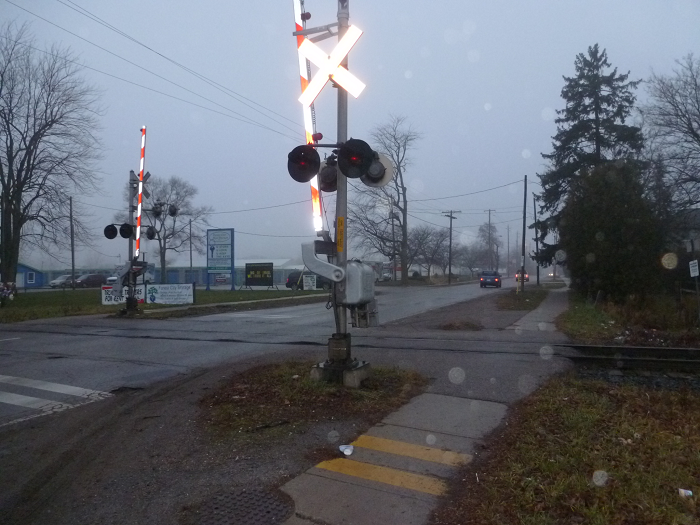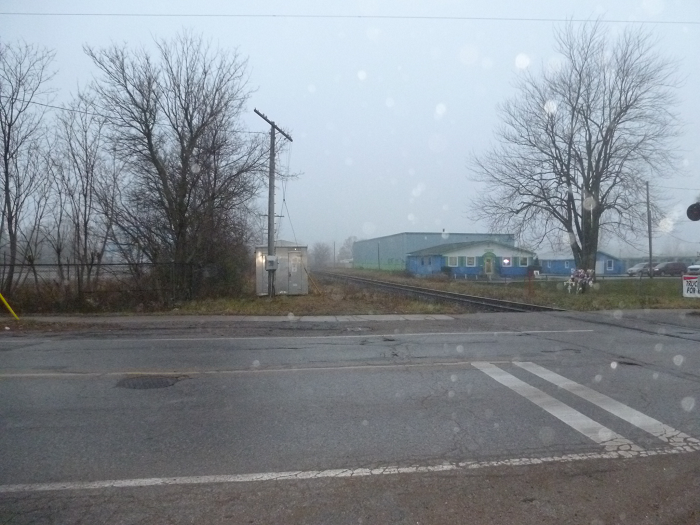Pedestrian fatality
Canadian Pacific Railway
Freight train 147-01
Mile 111.12, Galt Subdivision
London, Ontario
The occurrence
On 01 December 2012, at 1636 Eastern Standard Time, while proceeding westward on the Galt Subdivision, Canadian Pacific Railway freight train 147-01 struck an 11-year-old pedestrian on the Third Street public crossing (Mile 111.12) in London, Ontario. This crossing is equipped with flashing lights, a bell, and gates. The pedestrian sustained fatal injuries.
Media materials
News releases
Lack of awareness of railway crossing risks led to pedestrian fatality
Read the news release
Deployment notice
Transportation Safety Board of Canada deploys a team to investigate a rail accident in London, Ontario
The Transportation Safety Board of Canada (TSB) is deploying a team of investigators to London, Ontario, to the site of a rail accident. The TSB will gather information and assess the occurrence.
Download high-resolution photos from the TSB Flickr page.
Class of investigation
This is a class 3 investigation. These investigations analyze a small number of safety issues, and may result in recommendations. Class 3 investigations are generally completed within 450 days. For more information, see the Policy on Occurrence Classification.
TSB investigation process
There are 3 phases to a TSB investigation
- Field phase: a team of investigators examines the occurrence site and wreckage, interviews witnesses and collects pertinent information.
- Examination and analysis phase: the TSB reviews pertinent records, tests components of the wreckage in the lab, determines the sequence of events and identifies safety deficiencies. When safety deficiencies are suspected or confirmed, the TSB advises the appropriate authority without waiting until publication of the final report.
- Report phase: a confidential draft report is approved by the Board and sent to persons and corporations who are directly concerned by the report. They then have the opportunity to dispute or correct information they believe to be incorrect. The Board considers all representations before approving the final report, which is subsequently released to the public.
For more information, see our Investigation process page.
The TSB is an independent agency that investigates air, marine, pipeline, and rail transportation occurrences. Its sole aim is the advancement of transportation safety. It is not the function of the Board to assign fault or determine civil or criminal liability.

